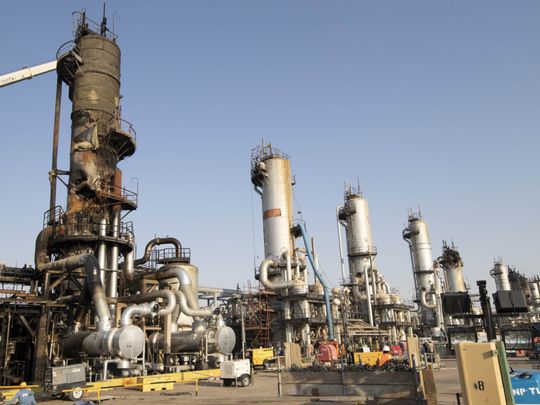
Saudi Arabia’s oil facilities in Abqaiq in the eastern province were attacked by drones and missiles last week that cut production at the facility to 50 per cent of its capability. While the Al Houthis claimed responsibility for the attack, evidence points out to a more sinister and realistic involvement and that is one from Iran.
According to US officials speaking on the condition of anonymity, it was Iran’s supreme leader Ayatollah Ali Khamenei who gave the go-ahead for last weekend’s attack on the kingdom’s oil infrastructure. The officials also claimed that Khamenei “approved the attack only on the condition that it be carried out in a way to deny Iranian involvement.” One official went so far to say that ‘the US administration has concluded the attack involved cruise missiles from Iran, and said evidence would be presented at the UN General Assembly next week.’
Most experts dismissed the possibility that the attacks originated in Yemen, the Al Houthi stronghold. “I think the case is definitely becoming stronger for the argument that it wasn’t launched from Yemen. Besides, the Al Houthis are not known to have the capability to build cruise missiles locally. The idea that impoverished, war-torn Yemen would be able to develop a cruise missile without any outside assistance seems far-fetched,” said a researcher at the James Martin Centre for Nonproliferation Studies at the Middlebury Institute of International Studies in Monterey, California.
Saudi Arabia is not afraid to stand for its sovereignty and territorial integrity. Testing its patience, again and again, may be Iran’s biggest mistake.
King Salman Bin Abdul Aziz of Saudi Arabia emphatically stated that “the kingdom can and will defend itself against cowardly attacks”. He also called on the international community to “clearly confront” the aggressors. The Crown Prince, Mohammad Bin Salman, added that the attacks on the Aramco oil facilities “are a test of international resolve in the face of destructive acts that threaten global security and stability.”
US locked and loaded
Within hours of the incident, in a tweet, the US President Donald Trump said the US was “locked and loaded depending on verification” that indeed it was Iran who staged the attack. His secretary of state, Mike Pompeo, has called it an act of war.
Immediately following the attack, the Saudis initial response was to set things back right and with the effort of the country’s firefighting units, the ring of fire on the facilities was quickly contained in record time.
A few days after the attack, the recently appointed Saudi Energy Minister Prince Abdul Aziz Bin Salman said that the country had restored half of the lost production and that full, pre-attack levels of production would resume within a month. Speaking to an audience of oil and energy experts in Abu Dhabi, the prince said that “Even consumers who do not purchase oil from the kingdom were hit. However, supply has returned to the same output as before the attacks on Saturday.”
With most evidence pointing towards Iran, it is not easy to dismiss the notion that the mischief-making mullahs running Iran are up to no good again. Since the Islamic Revolution in Iran back in 1979, the country has been held hostage by religious dogma and the fanaticism of Iranian clerics hell-bent on taking their once-prosperous country back to stone ages.
Iran is a country blessed with an abundance of natural resources, and to witness the callous manner in which those resources are being put to use by the ruling clerics is indeed a crime. This is a country that has sunk so far backward in the last few decades (at the expense of its citizens). Iranians suffer from a shortage of just about everything due to crippling sanctions slapped on their government.
Indeed Tehran’s expansion aims in the region will be thwarted regardless as no nation would want another seeking to impose its values on them. It is also time now for the Iranian people to raise their voice.
The Iranian regime must be under no illusion of conquering the region. War will not be good for them. In fact, war is not good for anyone. It will rain down untold suffering, especially on an Iranian people who have suffered for a long time. Saudi Arabia is not afraid to stand for its sovereignty and territorial integrity. Testing its patience, again and again, may be Iran’s biggest mistake.
— Tariq A. Al Maeena is a Saudi socio-political commentator. He lives in Jeddah, Saudi Arabia. Twitter: @talmaeena









